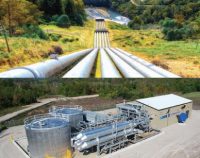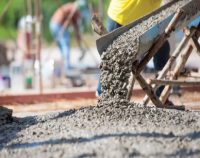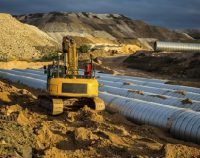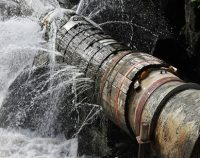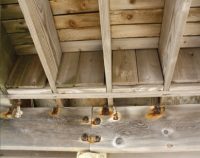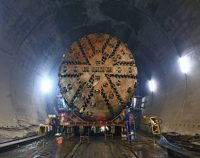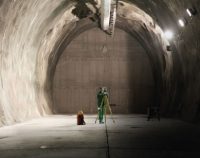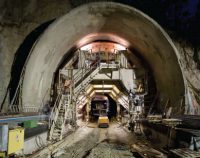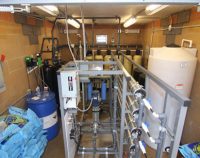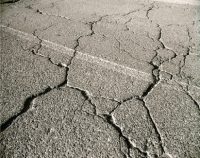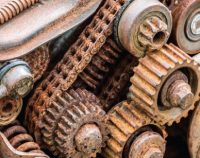Showing 21–40 of 76 results
Compressed Air Energy Storage and Pumped Storage Hydropower Concepts: 4 PDH
$24.00 Add to cartIn this course the student will understand understand current Compressed Air Energy Storage (CAES) and Pumped Storage Hydropower (PSH) technologies and explore future advances of this technology by examining the feasibility of a variety of different concepts. Instructor: Juan Pesante, PESPECIFIC KNOWLEDGE OR SKILL OBTAINED
This course teaches the following specific knowledge and skills:
- Understand current CAES and PSH technologies and their challenges
- Discuss bulk energy storage applications and their requirements
- Discuss novel CAES technologies
- Discuss novel PSH technologies
- Explain the feasibility of these novel technologies
- Discuss technological gaps and barriers and further R&D needs
CERTIFICATE OF COMPLETION
You will be able to immediately print a certificate of completion after passing a 20 question multiple-choice quiz. The quiz can be retaken unlimited times until a passing grade of 70% or better is earned. This course satisfies four (4) hours of professional development (PDH).
Preview CourseClick “Preview Course” to view prior to purchaseClick “Add to Cart” to purchaseConcepts for Advanced Electrical Knowledge & Practical Troubleshooting: 8 PDH
$40.00 Add to cartIn this course, applicable to all professional engineering backgrounds, the student will understand the concepts of electricity and mechanism and design of electronics. They will understand how electrical components work from theory to design to the operation of common industrial circuits with tips for practical troubleshooting.Instructor: Juan Pesante, PESPECIFIC KNOWLEDGE OR SKILL OBTAINED
This course teaches the following specific knowledge and skills:
- Discuss the concepts of electricity & electronic theory
- Understand electromagnetism and electromotive force
- Understand current, voltage, and resistance in circuits
- Explain DC & AC circuit analysis
- Discuss capacitance and inductance
- Understand DC & AC measuring instruments and concepts
- Explain circuit analysis and troubleshooting circuits
CERTIFICATE OF COMPLETION
You will be able to immediately print a certificate of completion after passing a 30 question multiple-choice quiz. The quiz can be retaken unlimited times until a passing grade of 70% or better is earned. This course satisfies eight professional development hours (PDH) of continuing education.
Preview CourseClick “Preview Course” to View Prior to PurchaseClick “Add to Cart” to Purchase and Access QuizConcrete Construction: 6 PDH
$36.00 Add to cartMore concrete is used than any other man-made material in the world, about seven billion cubic meters of concrete – more than one cubic meter for every person on Earth.
Concrete is one of the most important construction materials. It is comparatively economical, easy to make, offers continuity and solidity, and will bond with other materials.
In this course the student will understand essentially all aspects of concrete construction including characteristics, mix design, formwork, joints, placement, finishing, and pre-cast. Instructor: Raymond Bosek, PESPECIFIC KNOWLEDGE OR SKILL OBTAINED
This course teaches the following specific knowledge and skills:
- Define characteristics of concrete
- Identify ingredients essential for good concrete
- Calculate concrete mix designs
- Determine methods and mixing times of concrete
- Describe the types of concrete forms and their construction
- Determine the types of ties for and placement of reinforcing steel
- Determine the location of construction joints
- Determine proper occasions for using the concrete saw
- Describe the proper procedures for placing concrete
- Describe the methods available for consolidating concrete
- Describe the finishing process for the final concrete surface
- Determine projects suitable for and lifting methods necessary for precast and tilt-up construction
CERTIFICATE OF COMPLETION
You will be able to immediately print a certificate of completion after passing a 21 question multiple-choice quiz. The quiz can be retaken unlimited times until a passing grade of 70% or better is earned. This course satisfies six professional development hours (PDH) of continuing education.
Preview CourseClick “Preview Course” to View Prior to PurchaseClick “Add to Cart” to Purchase and Access QuizConduits, Culverts, and Pipes Part I: 4 PDH
$24.00 Add to cartPart I of a two-part series. This course provides guidance on the design and construction of conduits, culverts, and pipes, and the design procedures for trench/embankment earth loadings, highway loadings, railroad loadings, surface concentrated loadings, internal/external fluid pressures, cast-in-place conduits for dams, circular reinforced concrete pipe for small dams and levees, and corrugated metal pipe for rural levees and culverts.Instructor: Raymond Bosek, PEPart I of a two-part series. This course provides guidance on the design and construction of conduits, culverts, and pipes, and the design procedures for trench/embankment earth loadings, highway loadings, railroad loadings, surface concentrated loadings, internal/external fluid pressures, cast-in-place conduits for dams, circular reinforced concrete pipe for small dams and levees, and corrugated metal pipe for rural levees and culverts.
SPECIFIC KNOWLEDGE OR SKILL OBTAINED
This course teaches the following specific knowledge and skills:
- Material selection
- Installation methods
- Loadings
- Method of analysis
- Joints & camber
- Life cycle design
CERTIFICATE OF COMPLETION
You will be able to immediately print a certificate of completion after passing a 20 question multiple-choice quiz. The quiz can be retaken unlimited times until a passing grade of 70% or better is earned. This course satisfies 4 professional development hours (PDH) of continuing education.
Preview CourseClick “Preview Course” to View Prior to PurchaseClick “Add to Cart” to Purchase and Access QuizConduits, Culverts, and Pipes Part II: 4 PDH
$24.00 Add to cartPart II of a two-part series. This course provides guidance on the design and construction of conduits, culverts, and pipes, and the design procedures for trench/embankment earth loadings, highway loadings, railroad loadings, surface concentrated loadings, internal/external fluid pressures, cast-in-place conduits for dams, circular reinforced concrete pipe for small dams and levees, and corrugated metal pipe for rural levees and culverts.Instructor: Raymond Bosek, PEPart II of a two-part series. This course provides guidance on the design and construction of conduits, culverts, and pipes, and the design procedures for trench/embankment earth loadings, highway loadings, railroad loadings, surface concentrated loadings, internal/external fluid pressures, cast-in-place conduits for dams, circular reinforced concrete pipe for small dams and levees, and corrugated metal pipe for rural levees and culverts.
SPECIFIC KNOWLEDGE OR SKILL OBTAINED
This course teaches the following specific knowledge and skills:
- Material selection
- Installation methods
- Loadings
- Method of analysis
- Joints & camber
- Life cycle design
CERTIFICATE OF COMPLETION
You will be able to immediately print a certificate of completion after passing a 20 question multiple-choice quiz. The quiz can be retaken unlimited times until a passing grade of 70% or better is earned. This course satisfies 4 professional development hours (PDH) of continuing education.
Preview CourseClick “Preview Course” to View Prior to PurchaseClick “Add to Cart” to Purchase and Access QuizCorrosion Protection for Metal Fasteners in Coastal Areas: 3 PDH
$18.00 Add to cartIn this online course a student will understand material design and selection of metal fasteners and connectors on structures in coastal areas for increased corrosion-resistance.Instructor: Raymond Bosek, PESPECIFIC KNOWLEDGE OR SKILL OBTAINED
This course teaches the following specific knowledge and skills:
- Discuss the importance of using corrosion-resistant metal connectors and fasteners in coastal areas
- Discuss regulations and codes in corrosion resistance material selection for fasteners
- Explain the causes of corrosion in coastal areas
- Understand types of corrosion-resistant metal connectors and fasteners
- Explain best practices for corrosion resistance
CERTIFICATE OF COMPLETION
You will be able to immediately print a certificate of completion after passing a fifteen (15) question multiple-choice quiz. The quiz can be retaken unlimited times until a passing grade of 70% or better is earned. This course satisfies three (3) continuing education hour (CEH)/professional development hour (PDH) of continuing education.
Preview CourseClick” Preview Course” to View Prior to PurchaseClick “Add to Cart” to Purchase and Access QuizDesign and Construction of Road Tunnels-Part 1 Planning: 5 PDH
$30.00 Add to cartIn this course the student will come to understand a general overview of the planning process of a road tunnel project, geometrical requirements and recommendations of new road tunnels, investigative techniques and parameters required for planning, construction and design of road tunnels, and the different types of reports required for a road tunnel project.Instructor: Raymond Bosek, PEIn this course the student will come to understand a general overview of the planning process of a road tunnel project, geometrical requirements and recommendations of new road tunnels, investigative techniques and parameters required for planning, construction and design of road tunnels, and the different types of reports required for a road tunnel project.SPECIFIC KNOWLEDGE OR SKILL OBTAINED
This course teaches the following specific knowledge and skills:
- General tunnel design parameters
- Alternative analyses
- Tunnel studies
- Operation and financial planning
- Geometric configurations
- Geotechnical investigations
- Geotechnical Reports
CERTIFICATE OF COMPLETION
You will be able to immediately print a certificate of completion after passing a 30 question multiple-choice quiz. The quiz can be retaken unlimited times until a passing grade of 70% or better is earned. This course satisfies five (5) professional development hours (PDH) of continuing education.
Preview CourseClick “Preview Course” to View Prior to PurchaseClick “Add to Cart” to Purchase and Access QuizDesign and Construction of Road Tunnels-Part 2 Methodology and Excavation Support: 5 PDH
$30.00 Add to cartIn this course the student will understand the construction methodology and excavation support systems for cut-and-cover road tunnels, design and construction issues for rock and soft ground tunneling, and the special approaches that must be made when passing through difficult ground.Instructor: Raymond Bosek, PEIn this course the student will understand the construction methodology and excavation support systems for cut-and-cover road tunnels, design and construction issues for rock and soft ground tunneling, and the special approaches that must be made when passing through difficult ground.SPECIFIC KNOWLEDGE OR SKILL OBTAINED
This course teaches the following specific knowledge and skills:
- Cut and cover tunnels
- Rock Tunneling
- Softground tunneling
- Difficult ground tunneling
- Structural design and subsystems
- Groundwater control
- Tunnel support design
- Permanent lining design
- Soil stabilization
- Instability and heaving loads
CERTIFICATE OF COMPLETION
You will be able to immediately print a certificate of completion after passing a 30 question multiple-choice quiz. The quiz can be retaken unlimited times until a passing grade of 70% or better is earned. This course satisfies five (5) professional development hours (PDH) of continuing education.
Preview CourseClick “Preview Course” to View Prior to PurchaseClick “Add to Cart” to Purchase and Access QuizDesign and Construction of Road Tunnels-Part 3 Design and Detailing: 5 PDH
$30.00 Add to cartIn this course the student will understand the concepts of the sequential excavation method as well as the design, purpose and construction of tunnel linings, immersed tunnels, and jacked box tunnels.Instructor: Raymond Bosek, PEIn this course the student will understand the concepts of the sequential excavation method as well as the design, purpose and construction of tunnel linings, immersed tunnels, and jacked box tunnelsSPECIFIC KNOWLEDGE OR SKILL OBTAINED
This course teaches the following specific knowledge and skills:
- Sequential excavation method
- Tunnel lining
- Immersed tunnels
- Jacked box tunneling
- Ground classsification
- Instrumentation and monitoring
- Construction methodolgies
- Ground control and watertightness
CERTIFICATE OF COMPLETION
You will be able to immediately print a certificate of completion after passing a 30 question multiple-choice quiz. The quiz can be retaken unlimited times until a passing grade of 70% or better is earned. This course satisfies five (5) professional development hours (PDH) of continuing education.
Preview CourseClick “Preview Course” to View Prior to PurchaseClick “Add to Cart” to Purchase and Access QuizDesign and Construction of Road Tunnels-Part 4 Obstacles and Mitigations: 5 PDH
$30.00 Add to cartIn this course the student will understand the reasons and methods to consider regarding seismic activity in the design process. The concepts of mined/bored tunnel construction engineering. Also, how to monitor the performance of the tunnel construction process, and how to identify, characterize and repair tunnels.Instructor: Raymond Bosek, PEIn this course the student will understand the reasons and methods to consider regarding seismic activity in the design process. The concepts of mined/bored tunnel construction engineering. Also, how to monitor the performance of the tunnel construction process, and how to identify, characterize and repair tunnels.SPECIFIC KNOWLEDGE OR SKILL OBTAINED
This course teaches the following specific knowledge and skills:
- Seismis considerations and evaluation
- Tunnel construction engineering
- Staging and sequencing
- Instrumentation
- Gorund movements and groundwater behavior
- Tunnel Rehabilation
- Structural and lining repairs
CERTIFICATE OF COMPLETION
You will be able to immediately print a certificate of completion after passing a 25 question multiple-choice quiz. The quiz can be retaken unlimited times until a passing grade of 70% or better is earned. This course satisfies five (5) professional development hours (PDH) of continuing education.
Preview CourseClick “Preview Course” to View Prior to PurchaseClick “Add to Cart” to Purchase and Access QuizDesign and Development of Hybrid Power Plants: 4 PDH
$24.00 Add to cartIn this course the student will understand the hybrid power plant and the necessary design and planning details required to ensure reliable and efficient means for power production. Instructor: Juan Pesante, PESPECIFIC KNOWLEDGE OR SKILL OBTAINED
This course teaches the following specific knowledge and skills:
- Understand the hybrid power plant
- Discuss hybrid power plant resources and market opportunities
- Discuss plant design and optimization
- Discuss plant control and operation
- Explain hybrid power plant market and technology challenges
CERTIFICATE OF COMPLETION
You will be able to immediately print a certificate of completion after passing a 20 question multiple-choice quiz. The quiz can be retaken unlimited times until a passing grade of 70% or better is earned. This course satisfies four (4) hours of professional development (PDH).
Preview CourseClick “Preview Course” to view prior to purchaseClick “Add to Cart” to purchaseDesign of Small Water Systems: 3 PDH
$18.00 Add to cartThis course focuses on criteria for water source development, design of small water supply, treatment, and distribution systems. This professional engineer online course is from the U.S. Army Corps of Engineers manual on the Design of Small Water Systems. This manual provides information of interest to planners and designers of small water systems. The major emphasis of this course is on the design of systems that will be effective and reliable, requiring a level of operation and management activity commensurate with their physical size and the available sources.Instructor: Raymond Bosek, PEThis course focuses on criteria for water source development, design of small water supply, treatment, and distribution systems. This professional engineer online course is from the U.S. Army Corps of Engineers manual on the Design of Small Water Systems. This manual provides information of interest to planners and designers of small water systems. The major emphasis of this course is on the design of systems that will be effective and reliable, requiring a level of operation and management activity commensurate with their physical size and the available sources.
SPECIFIC KNOWLEDGE OR SKILL OBTAINED
This course teaches the following specific knowledge and skills:
- Preliminary Water System Planning and Design Considerations
- Water Quality Requirements (State, EPA, local)
- Water Quantity Requirements
- Water Source Options and Source Development
- Water Treatment Unit Operations such as Disinfection, Iron Removal
- Manganese Removal, Hardness Removal, Taste and Odor Removal
- Stability and Corrosion Control, Turbidity Removal, Color Removal, and many other technologies and their applications
CERTIFICATE OF COMPLETION
You will be able to immediately print a certificate of completion after passing a 20 question multiple-choice quiz. The quiz can be retaken unlimited times until a passing grade of 70% or better is earned. This course satisfies 3 professional development hours (PDH) of continuing education.
Preview CourseClick “Preview Course” to View Prior to PurchaseClick “Add to Cart” to Purchase and Access QuizDistressed Pavements Identification: 3 PDH
$18.00 Add to cartThis course enables the student to understand, evaluate, and determine which type of pavement distress is taking place on roadways and paved surfaces. The student will learn how to identify different types of pavement distresses and , severity levels, means to measure the distresses and methods to document.Instructor: Raymond Bosek, PESPECIFIC KNOWLEDGE OR SKILL OBTAINED
This course teaches the following specific knowledge and skills:
- Identifying distresses in different surfaces
- Understanding and identifying the severity levels
- How to measure the distresses
- Methods to document /li>
CERTIFICATE OF COMPLETION
You will be able to immediately print a certificate of completion after passing a 15 question multiple-choice quiz. The quiz can be retaken unlimited times until a passing grade of 70% or better is earned. This course satisfies three (3) professional development hours (PDH) of continuing education.
Preview CourseClick “Preview Course” to View Prior to PurchaseClick “Add to Cart” to Purchase and Access QuizDurability by Design: 5 PDH
$30.00 Add to cartIn this course the student will receive guidance on designing durable homes for today’s housing industry, addressing critical topics, including water vapor management, envelope design, and natural hazards. Instructor: Raymond Bosek, PESPECIFIC KNOWLEDGE OR SKILL OBTAINED
This course teaches the following specific knowledge and skills:
- Explain durability and critical areas of concern on residential structures
- Understand the negative effects of ground water, rain water, and water vapor
- Discuss HVAC and plumbing designs for durability/li>
- Discuss effects of solar radiation and mitigation techniques
- Explain decay, corrosion, and natural hazards effects and solutions for durability
CERTIFICATE OF COMPLETION
You will be able to immediately print a certificate of completion after passing a 20 question multiple-choice quiz. The quiz can be retaken unlimited times until a passing grade of 70% or better is earned. This course satisfies five professional development hours (PDH) of continuing education.
Preview CourseClick “Preview Course” to View Prior to PurchaseClick “Add to Cart” to Purchase and Access QuizElectrical Storage Guide for Electrical Engineers: 5 PDH
$30.00 Add to cartThis course provides a thorough overview of current electrical storage technologies including batteries, flywheels, compressed air energy storage (CAES), and pumped storage hydropower (PSH) and is a how-to guide for engineers to aid in the selection, procurement, installation, and/or operation of stationary energy storage systems in today’s electric grid. Instructor: Juan Pesante, PESPECIFIC KNOWLEDGE OR SKILL OBTAINED
This course teaches the following specific knowledge and skills:
- Discuss electricity storage services and benefits
- Understand various forms of current electric storage technologies
- Explain advantages/disadvantages of current electric storage technologies
- Discuss the methodology of evaluating electricity storage
- Discuss storage systems procurement and installation
CERTIFICATE OF COMPLETION
You will be able to immediately print a certificate of completion after passing a twenty (20) question multiple-choice quiz. The quiz can be retaken unlimited times until a passing grade of 70% or better is earned. This course satisfies five (5) professional development hours (PDH) of continuing education.
Preview CourseClick “Preview Course” to View Prior to PurchaseClick “Add to Cart” to Purchase and Access QuizElectrification-Power System Evolution and Infrastructure Development: 5 PDH
$30.00 Add to cartIn this course the student will understand Electrification, the shift from non-electric to electric sources of energy at the point of final consumption, and an analysis of the potential impacts of widespread electrification on the evolution of the U.S. electricity system. This course follows the guide: Electrification Futures Study: Scenarios of Power System Evolution and Infrastructure Development for the United States, published by the National Renewable Energy Laboratory. Instructor: Juan Pesante, PESPECIFIC KNOWLEDGE OR SKILL OBTAINED
This course teaches the following specific knowledge and skills:
- Understand Electrification and what it means for the future
- Discuss end-use technology variations of the U.S. electrical system infrastructure
- Discuss variations on cost, energy consumption, and emissions
- Discuss demand-side flexibility variations
- Explain electric sector variations on system evolution, costs, energy consumption, and emissions
CERTIFICATE OF COMPLETION
You will be able to immediately print a certificate of completion after passing a 20 question multiple-choice quiz. The quiz can be retaken unlimited times until a passing grade of 70% or better is earned. This course satisfies five (5) hours of professional development (PDH).
Preview CourseClick “Preview Course” to view prior to purchaseClick “Add to Cart” to purchaseEnergy Efficient Cool Roofs: 1 PDH
$6.00 Add to cartIn this online course a student will understand energy efficient cool roofs, what they are and when to use, material selection for cool roofs, and applications for new construction and restoring exisiting structures.Instructor: Seth Grablow, PESPECIFIC KNOWLEDGE OR SKILL OBTAINED
This course teaches the following specific knowledge and skills:
- Understand the workings of cool roofs
- Identify the different types of cool roof materials
- Discuss cool roof selection and climate zones
- Explain cool roofs new construction & modifying existing buildings
CERTIFICATE OF COMPLETION
You will be able to immediately print a certificate of completion after passing a ten (10) question multiple-choice quiz. The quiz can be retaken unlimited times until a passing grade of 70% or better is earned. This course satisfies one (1) continuing education hour (CEH)/professional development hour (PDH) of continuing education.
Preview CourseClick” Preview Course” to View Prior to PurchaseClick “Add to Cart” to Purchase and Access QuizEnergy Performance of LEED for New Construction Buildings: 2 PDH
$12.00 Add to cartThis course focuses on the measured energy performance for 121 LEED New Construction buildings, and compares the data to a variety of benchmarks, including Commercial Building Energy Consumption Survey (CBECS) averages, Energy Star ratings and modeled energy performance estimates provided with LEED submittals.Instructor: Raymond Bosek, PEThis focuses on the measured energy performance for 121 LEED New Construction buildings, and compares the data to a variety of benchmarks, including Commercial Building Energy Consumption Survey (CBECS) averages, Energy Star ratings and modeled energy performance estimates provided with LEED submittals.
SPECIFIC KNOWLEDGE OR SKILL OBTAINED
This course teaches the following specific knowledge and skills:
- Recognize how energy performance of the sample set of buildings was evaluated
- Understand energy savings of LEED certified buildings
- Discern the accuracy of energy models
- Discern the accuracy of building specific energy models
- Interpret the strength and weeknesses of using LEED
CERTIFICATE OF COMPLETION
You will be able to immediately print a certificate of completion after passing a 10 question multiple-choice quiz. The quiz can be retaken unlimited times until a passing grade of 70% or better is earned. This course satisfies 2 professional development hours (PDH) of continuing education.
Preview CourseClick “Preview Course” to View Prior to PurchaseClick “Add to Cart” to Purchase and Access QuizEnergy Storage Technology Cost and Performance: 4 PDH
$24.00 Add to cartIn this course the student will understand a variety of different energy storage technologies and explore their advantages and disadvantages with an in-depth cost and performance comparison. This course follows the report: Energy Storage Technology and Cost Characterization Report, published by the U.S. Department of Energy (DOE). Instructor: Juan Pesante, PESPECIFIC KNOWLEDGE OR SKILL OBTAINED
This course teaches the following specific knowledge and skills:
- Understand energy storage deployments by technology
- Discuss cost and performance metrics of different technologies
- Discuss in-depth parameters of each energy storage technologies
- Explain annualized cost and comparison of the technologies
CERTIFICATE OF COMPLETION
You will be able to immediately print a certificate of completion after passing a 20 question multiple-choice quiz. The quiz can be retaken unlimited times until a passing grade of 70% or better is earned. This course satisfies four (4) hours of professional development (PDH).
Preview CourseClick “Preview Course” to view prior to purchaseClick “Add to Cart” to purchaseEngineer’s Guide to Corrosion-Causes, Protection and Control: 8 PDH
$40.00 Add to cartIn this course the student will understand the process of corrosion on metals from its causes and effects into protection and control. The student will understand corrosion on a variety of metals and methods to mitigate and control corrosion over the life of a material. Instructor: Seth Grablow, PESPECIFIC KNOWLEDGE OR SKILL OBTAINED
This course teaches the following specific knowledge and skills:
- Discuss environmental factors that affect corrosion
- Understand the eight major forms of corrosion
- Discuss corrosion characteristics and properties of various common metals
- Explain corrosion protection and methods of control
- Discuss monitoring of corrosion and available inspection technologies
- Understand the electrochemistry, kinetics, and thermodynamics of the corrosion process
CERTIFICATE OF COMPLETION
You will be able to immediately print a certificate of completion after passing a 30 question multiple-choice quiz. The quiz can be retaken unlimited times until a passing grade of 70% or better is earned. This course satisfies eight professional development hours (PDH) of continuing education.
Preview CourseClick “Preview Course” to View Prior to PurchaseClick “Add to Cart” to Purchase and Access Quiz

